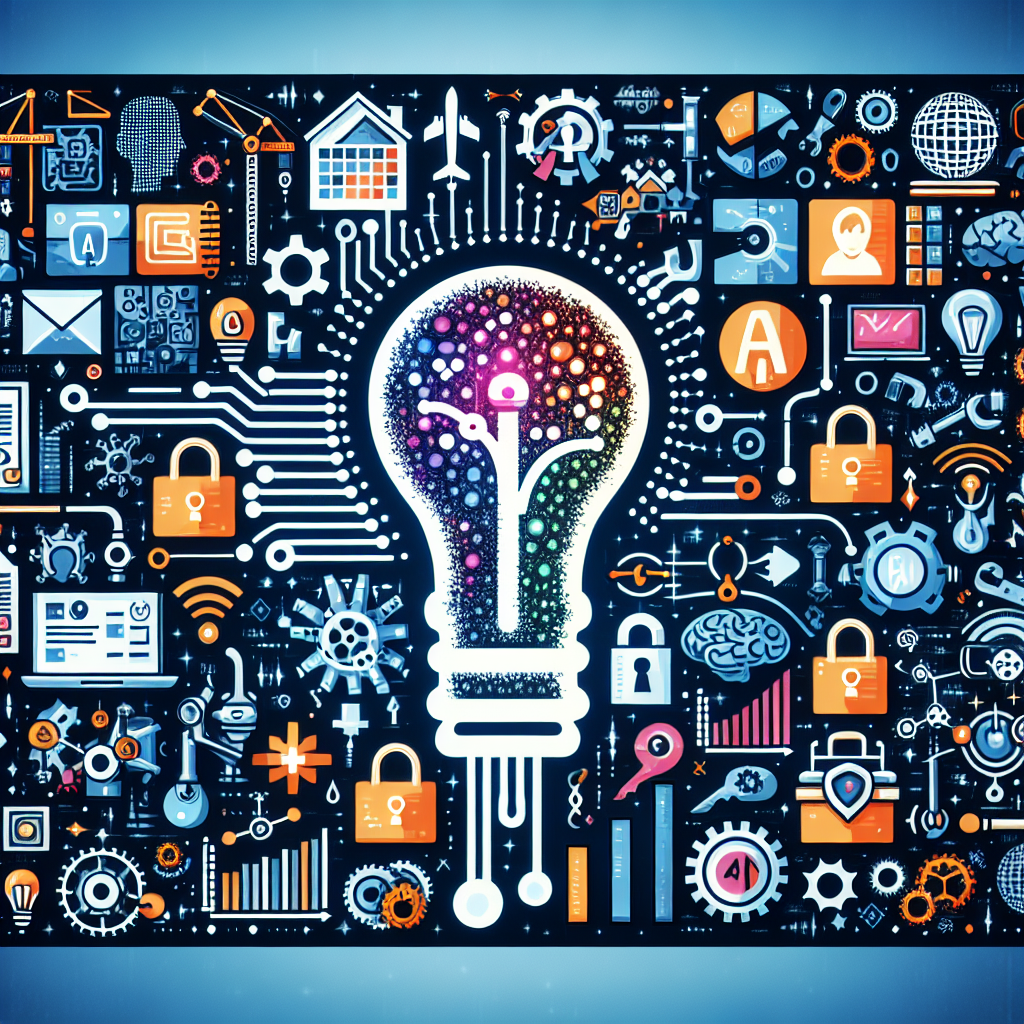Understanding the Potential of AGI: How Artificial General Intelligence Could Transform Industries
In recent years, artificial intelligence (AI) has made significant advancements in various industries, from healthcare to finance to transportation. However, despite these advancements, AI still lacks the ability to perform tasks that require general intelligence, such as reasoning, problem-solving, and understanding complex situations. This is where Artificial General Intelligence (AGI) comes in.
AGI is a type of AI that is designed to mimic human-like intelligence, allowing it to adapt to new situations, learn from experience, and solve a wide range of tasks without being explicitly programmed to do so. While AGI is still in its early stages of development, researchers and experts believe that it has the potential to revolutionize industries in ways that we can only imagine.
In this article, we will explore the potential of AGI and how it could transform industries in the near future.
What is AGI?
AGI is a form of AI that is designed to perform any intellectual task that a human can do. This includes tasks such as understanding natural language, recognizing patterns, making decisions based on incomplete information, and solving complex problems. Unlike narrow AI, which is designed for specific tasks, AGI has the ability to learn and adapt to new situations without being explicitly programmed to do so.
The goal of AGI is to create a machine that can think and reason like a human, with the ability to learn from experience, generalize knowledge, and perform a wide range of tasks across different domains. While AGI is still in the early stages of development, researchers and experts believe that it has the potential to revolutionize industries in ways that we can only imagine.
How AGI Could Transform Industries
1. Healthcare
One of the most promising applications of AGI is in healthcare. AGI has the potential to revolutionize the way we diagnose and treat diseases, with the ability to analyze large amounts of medical data, identify patterns, and make accurate predictions about patient outcomes. AGI could also help in drug discovery, by identifying potential new drugs and predicting their effectiveness before they are tested in clinical trials.
2. Finance
In the finance industry, AGI could help in making more accurate predictions about market trends, identifying investment opportunities, and managing risks. AGI could also help in detecting fraud and money laundering, by analyzing large amounts of financial data and identifying suspicious patterns. With the ability to learn from experience, AGI could also help in optimizing trading strategies and making better investment decisions.
3. Transportation
AGI could revolutionize the transportation industry by improving the efficiency and safety of autonomous vehicles. AGI could help in making real-time decisions about navigation, traffic conditions, and potential hazards, with the ability to adapt to changing situations on the road. AGI could also help in optimizing routes, reducing congestion, and minimizing accidents, by analyzing large amounts of data from sensors and cameras on vehicles.
4. Manufacturing
In the manufacturing industry, AGI could help in optimizing production processes, reducing waste, and improving quality control. AGI could analyze data from sensors and cameras on production lines, identify bottlenecks and inefficiencies, and make real-time adjustments to improve productivity. AGI could also help in predicting equipment failures and scheduling maintenance, by analyzing historical data and identifying patterns that indicate potential issues.
5. Education
AGI could revolutionize the education industry by personalizing learning experiences for students, based on their individual needs and abilities. AGI could analyze data from assessments, quizzes, and homework assignments, identify areas where students are struggling, and recommend personalized learning resources to help them improve. AGI could also help in grading assignments, providing feedback to students, and identifying areas where teachers can improve their teaching methods.
FAQs
Q: What is the difference between AGI and narrow AI?
A: The main difference between AGI and narrow AI is that AGI is designed to perform any intellectual task that a human can do, while narrow AI is designed for specific tasks. AGI has the ability to learn and adapt to new situations, while narrow AI is limited to the tasks it was designed for.
Q: When will AGI be available?
A: It is difficult to predict when AGI will be available, as it is still in the early stages of development. Researchers and experts believe that AGI could be achieved within the next few decades, but this timeline is subject to change depending on the progress of research and development.
Q: What are the ethical implications of AGI?
A: The development of AGI raises ethical concerns about the potential impact on society, privacy, and employment. Researchers and experts are working to address these concerns by developing ethical guidelines and principles for the responsible use of AGI.
In conclusion, AGI has the potential to revolutionize industries in ways that we can only imagine. With the ability to think and reason like a human, AGI could transform healthcare, finance, transportation, manufacturing, and education, by improving efficiency, accuracy, and productivity. While AGI is still in the early stages of development, researchers and experts believe that it could be achieved within the next few decades, with the potential to change the way we live and work in the future.

